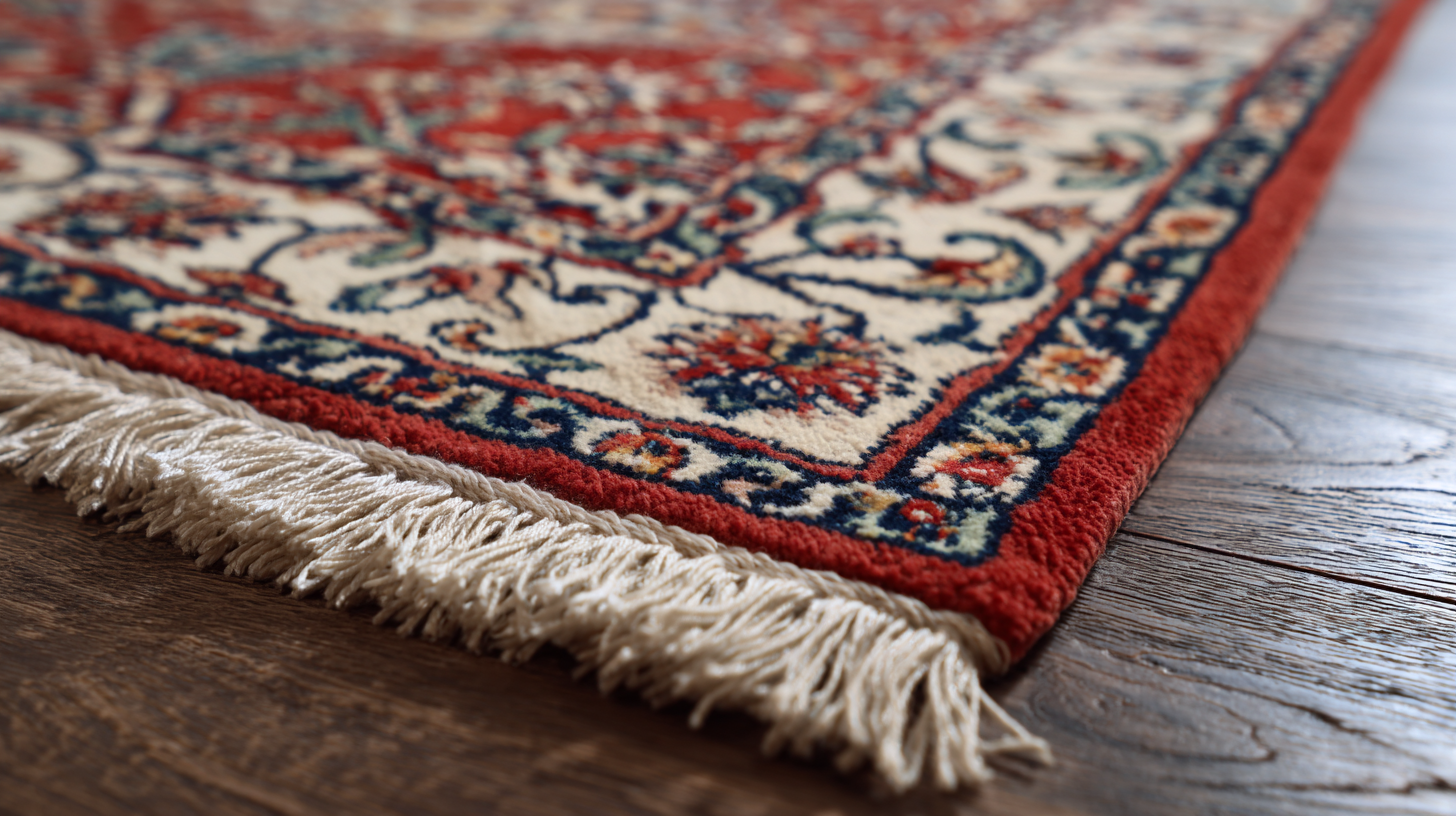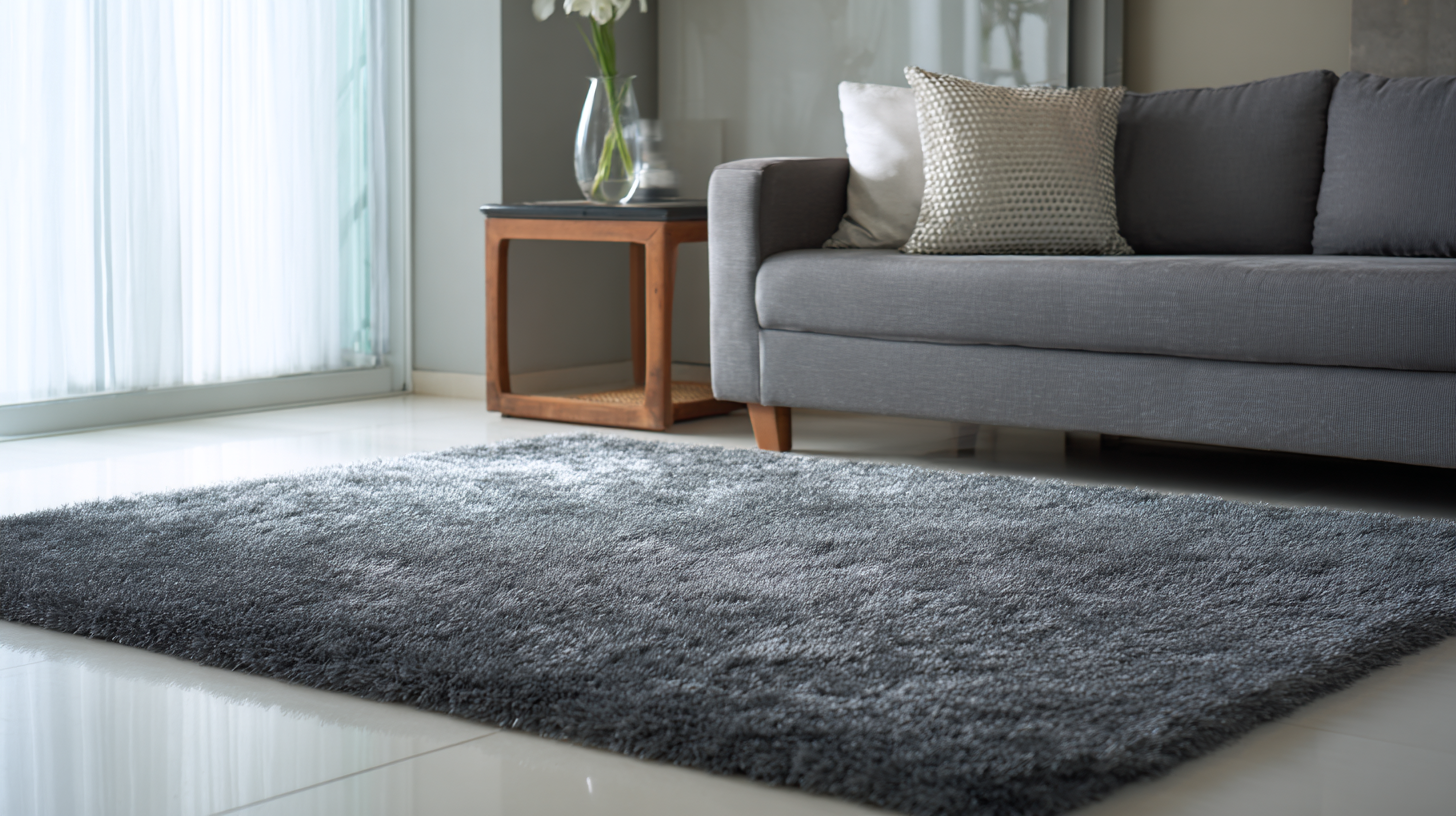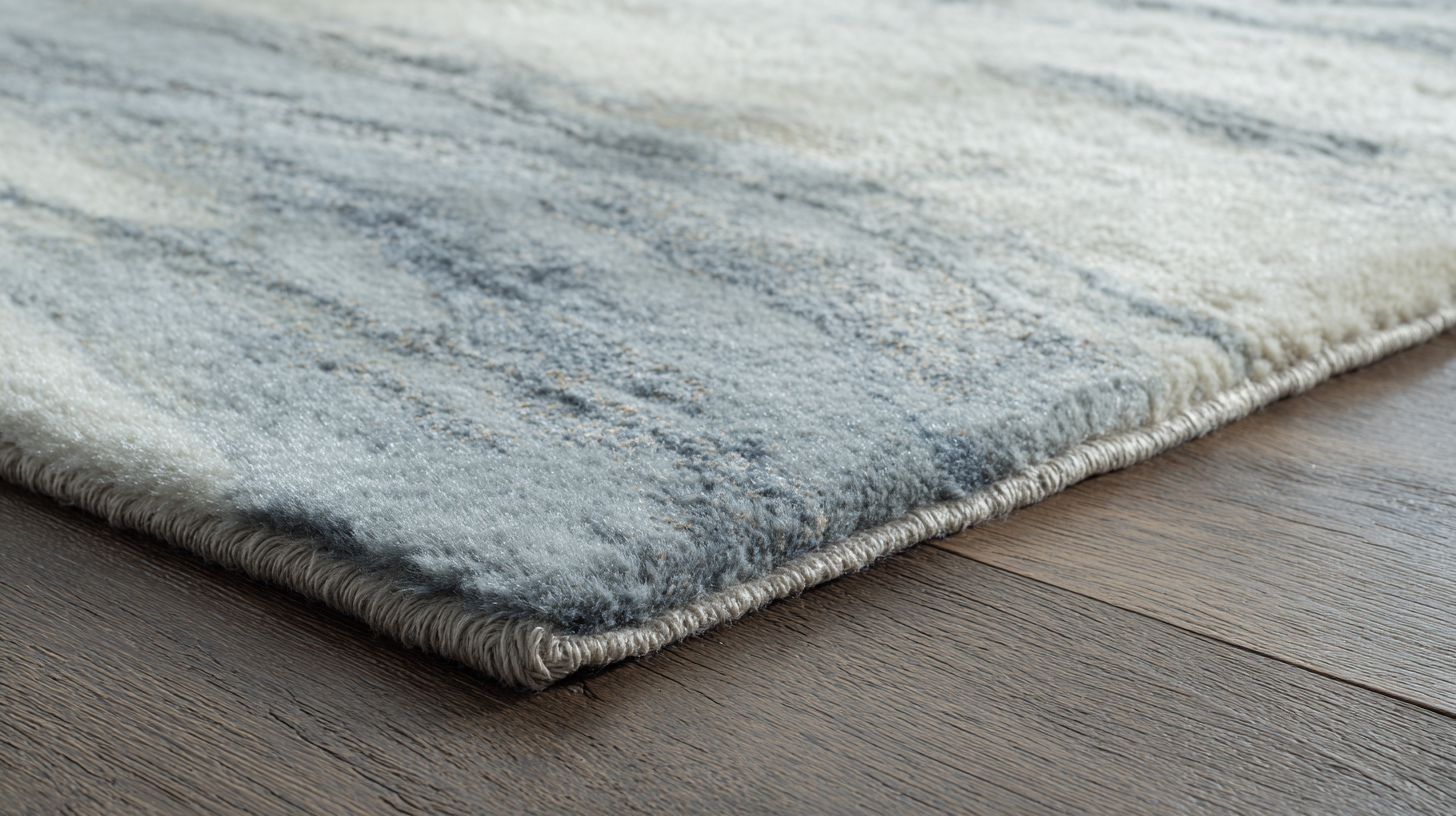
-
Home
-
About Us
-
Products
-
News
-
Blog
-
Contact Us
Leave Your Message

In the rapidly evolving home décor market, the demand for Grey Washable Rugs has surged, driven by a growing emphasis on both aesthetics and functionality in interior design. According to a recent report by the Global Home Textiles Market, the washable rug segment is expected to witness a compound annual growth rate (CAGR) of 8% from 2023 to 2030, reflecting a significant consumer shift towards versatile and low-maintenance flooring options. As more homeowners seek sustainable and practical designs, understanding the import and export certifications for these products becomes increasingly crucial. Compliance with international standards not only ensures product safety and quality but also enhances market accessibility. This guide aims to demystify the certification process, equipping merchants and consumers alike with the knowledge needed to navigate the complexities of the Grey Washable Rug market effectively.

In the competitive rug industry, understanding the key standards for import and export certifications is paramount for businesses aiming to succeed in the global market. Certifications not only validate product quality but also ensure compliance with international trade regulations, which can significantly impact market entry and consumer trust. For instance, countries increasingly demand adherence to specific guidelines that guarantee products meet certain safety and environmental standards. This is particularly true in markets like Vietnam, where businesses are actively seeking to tap into lucrative sectors such as the Halal market, necessitating critical international certification.

The rug industry, particularly in regions like Bangladesh, has faced challenges due to a lack of technological advancements and adherence to certification standards. As local producers struggle to compete with imported goods, the importance of compliance becomes increasingly evident. Developing a robust understanding of these key standards can empower businesses to retain their market share and expand their reach. By prioritizing certifications that appeal to evolving consumer preferences, companies can better position themselves in an ever-changing landscape, ensuring their products not only meet diverse market needs but also capture the trust of global consumers.
When delving into the grey washable rug market, understanding the importance of manufacturer certifications is crucial for ensuring quality and customer satisfaction. Certifications act as a mark of trust and can significantly influence purchasing decisions. Key certifications, such as ISO 9001 for quality management systems and OEKO-TEX® Standard 100 for safety and environmental sustainability, indicate that a manufacturer adheres to strict industry standards. Rugs that bear these certifications not only promise durability but also assure consumers that they are free from harmful substances, fostering a healthier living environment.
Furthermore, certifications like GoodWeave and the RugMark signify that the rugs are produced under ethically sound practices, free from child labor and exploitation. In today’s market, conscious consumerism drives many buyers to seek products that resonate with their values. By opting for rugs from certified manufacturers, consumers can take pride in their purchases, knowing they support responsible production methods while still enjoying the aesthetic and practical benefits of their grey washable rugs. As the market grows, staying informed about these certifications will empower shoppers to make educated choices that align with quality and ethics.
In the ever-evolving rug market, compliance with import and export certifications is crucial for ensuring both safety and durability. According to a 2022 report from the International Textile Manufacturers Federation, approximately 25% of carpets and rugs imported into the U.S. faced compliance issues related to safety standards. This statistic underscores the importance of adhering to regulatory requirements to protect consumers and maintain product integrity. The certifications not only serve as a benchmark for quality but also bolster consumer confidence in purchasing decisions.
Moreover, the lifespan of rugs can be significantly influenced by their compliance with durability standards set forth by organizations such as the American Society for Testing and Materials (ASTM). Research indicates that compliant rugs exhibit a 30% increased durability compared to non-compliant counterparts. This finding is vital for manufacturers and retailers aiming to establish a reputable presence in the grey washable rug market, as consumer preferences are shifting toward sustainable and long-lasting products. Ensuring compliance with safety and durability certifications is not just a regulatory obligation but a strategic advantage in meeting consumer demand and enhancing brand loyalty.
 The demand for grey washable rugs has been steadily increasing as consumers seek versatility and practicality in their home decor. These rugs not only complement various interior styles but also offer easy maintenance, making them a popular choice among homeowners. With this rise in popularity, manufacturers are focusing on quality production practices to meet consumer expectations for durability and design.
The demand for grey washable rugs has been steadily increasing as consumers seek versatility and practicality in their home decor. These rugs not only complement various interior styles but also offer easy maintenance, making them a popular choice among homeowners. With this rise in popularity, manufacturers are focusing on quality production practices to meet consumer expectations for durability and design.
Tip: When shopping for grey washable rugs, always check for high-quality materials that ensure longevity. Look for rugs made from soft, durable fibers that can withstand frequent washing without losing their shape or color.
As the market grows, it's crucial for manufacturers to adopt sustainable practices in their production processes. This includes sourcing eco-friendly materials and using ethical manufacturing methods. Consumers are becoming more conscious of their environmental impact, necessitating that brands not only deliver on style but also prioritize sustainability.
Tip: It's advisable to research brands that prioritize sustainability when purchasing rugs. Look for certifications that indicate responsible sourcing and production, ensuring your choice supports environmentally friendly practices.
When venturing into the grey washable rug market, understanding tariffs and duties is crucial for ensuring a smooth import process. Tariffs are taxes imposed by governments on imported goods, intended to protect domestic industries and generate revenue. For rug imports, these tariffs can vary significantly depending on the country of origin, the material used, and trade agreements in place. Importers must stay informed about the latest tariff schedules and changes to assess the potential costs accurately, which can directly influence pricing strategies and profit margins.
In addition to tariffs, duties such as value-added tax (VAT) and customs fees play a vital role in the total cost of importing rugs. These costs can add up quickly, making it essential for businesses to account for them in their overall budgeting. Navigating these trade regulations can be complex, particularly when discrepancies in classification codes arise or when import quotas are established for specific rug types. By closely monitoring trade regulations and collaborating with experienced customs brokers, importers can mitigate risks and ensure compliance, thereby enhancing their ability to compete effectively in the growing market for grey washable rugs.
| Certification Type | Description | Associated Tariff Rate (%) | Region |
|---|---|---|---|
| OEKO-TEX® Standard 100 | Certifies fabrics are free from harmful substances. | 2.5 | Global |
| ISO 9001 | Quality management systems certification. | 3.0 | Global |
| Bamboo Certification | Certifies that products are made from sustainable bamboo. | 0.5 | Asia |
| Made-in Green by OEKO-TEX® | Indicates the product has been tested for harmful substances. | 2.0 | Global |
| GOTS (Global Organic Textile Standard) | Covers the processing, manufacturing, packaging, and labeling of organic textiles. | 2.0 | Global |
| USDA Organic | Certifies organic textile products meeting USDA standards. | 1.5 | USA |